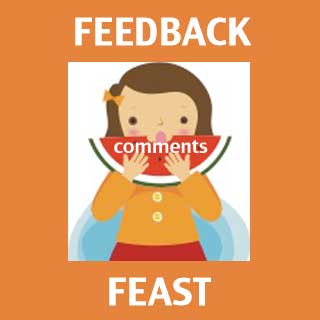As promised, this week I want to share some thoughts after a conversation with my agent regarding those 24 pages of comments on my young adult novel, FADE AWAY. I’ll highlight a few things here and will offer additional, more general tips through my Blab-o-Tips Novels e-newsletter.
Breaking Out, Setting Free
One of the things that continues to amaze and amuse me is how I become so used to a particular story angle that it doesn’t occur to me to change it, even when I find myself writing around it and forcing things to work because of it. I always have a good reason for it in the beginning, but as the story evolves, the reason often disappears. Such was the case with tying my dead character to the cemetery. I know I had a reason in the beginning for having that be the only place where Sheridan sees him, but now it doesn’t make sense for the story and it also restricts access to him. But I couldn’t see that until Lara and I talked about it. I’m going to set him free; I have a feeling his character will be much more alive when I do. And since I do need Sheridan to see him at the cemetery in a few scenes, I’ve come up with why and how that happens.
Honing in on Story
The most important question my agent posed to me is now posted on my monitor for my desktop and on a sticky on my laptop. I don’t often write in “shouting” all caps, but I think this warrants it:
WHAT ARE WE READING TO FIND OUT?
We’ve all heard variations of this: What’s your story about? What’s the goal/motivation/conflict? and so on. But having it worded in this way really sparked something in my mind. There’s an exterior or interior mystery that the story is working to solve. It may be an actual mystery–who/whatdunnit–or it may be a more personal mystery–will she get over her insecurities and stand up for herself? Will he see his own worth and go after what he wants?
I have a few threads in my story and it wasn’t clear what the main “mystery” was–the main thing we are reading to find out. My agent helped me narrow my focus so now I’m playing with a few ideas and will see where they take me. Once I land on one, I can weave those threads so they support and enhance that main focus. It’s very exciting, even with all the work I know is ahead of me. Woop!
I hope these help you with your own story and if they spark additional thoughts that can help us, please share!





My templates are littered with a list of prompts I need to fill before I can finish writing a scene. Such as ‘Purpose’ or ‘Heart’ or ‘Questions answered’ and ‘Questions raised’.
I get many of my prompts from Donald Maass’ The Fire in Fiction: First line/Last line; OTP/ITP (inner and outer turning points), Goal, Tornado. Each section generates more ideas to flesh out the structure.
And one that always surprises me (I don’t know why – I plotted it this way): why is THIS scene pivotal to the story?
I was taken to task (nicely) by a fellow writer on Wattpad who said that my writing was too intense – and I should provide some resting places. Nuh uh. No rest for the Reader – we have too many things to accomplish and it’s taking too many words already.
Your question is a good summary of all those prompts.
I use “What is the purpose of this scene?” a lot when I’m writing and revising. But wow. I like your question – “Why is THIS scene pivotal to the story?” Brilliant! Thank you for that. Another question to have nearby as I write. Interesting response from the Wattpad writer. I think it depends on what s/he means by “rest” – similar to what we get in action movies where we have a brief interlude of humor, romance, or reflection before jumping into the next action-filled sequence? I think it depends on the story you are writing. Some books require light speed page turning :-). Others meander and that’s perfect for them.
When you’re writing a Love Story (not a category Romance – those have rules) that will end up at three volumes and upward of 300K words total, it is already too long – no space for meandering. So instead, I have to make it a sequence of scenes that are both pivotal – and as compelling as I can make them.
You’re absolutely right: what the book requires.
The guy on Wattpad is NOT in my target demographic (though he’s become a friend – it’ll be curious to see if he keeps reading, and I won’t mind if he doesn’t).
Thank goodness there are readers and writers for every taste – even within the same person. Some like sameness, others variety (me). Plenty of readers to go around, no need to get greedy and exclusionary. It’s a great new world.
Well said on all counts! I’ve been reminding the students I teach (and myself) that you can’t write for everyone or your story will be so bland it will be worthless. You have to know your audience and give them the best ride you possibly can. It is indeed, a great new world.